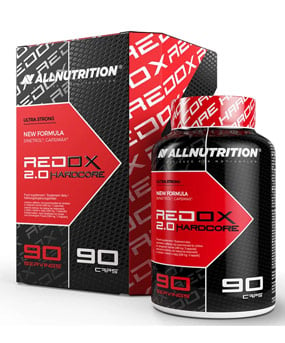Nie będę się rozpisywał na temat teoretycznych dywagacji dotyczących BCAA, marketingowych haseł i zapewnień. Każdy kto ma jakiekolwiek pojecie na temat suplementów wie czym są/powinny być aminokwasy rozgałęzione - skutecznym antykatabolikiem. Czy tak jest faktycznie? Udało mi się znaleźć kilka badań i to wraz z wynikami
 , jeśli były na forum - można usunąc - nie obrażę się, ale sam kiedyś już szukałem i miałem problem by znaleźć jakies konkrety.
, jeśli były na forum - można usunąc - nie obrażę się, ale sam kiedyś już szukałem i miałem problem by znaleźć jakies konkrety.
Z góry zaznaczam, że moja znajomosc j. angielskiego jest pobieżna, wiec nie zabieralem sie za kompletne tłumaczenia, natomias dodalem krotkie interpretacjie/komentarze. Myslę, że podstawowa znajomosc tego jezyka pozwoli wiekszosci zrozumiec zalożenia i wyniki przytoczonych badań. Jesli jest ktos chętny podjęcia się kompletnego przełozenia z obcego na nasze - zapraszm, wszyscy będiemy wdzięczni.
Wnioski z poniższych informacji - wyciągnie sobie każdy sam, a podstawowe pytanie brzmi - czy BCAA spelniają indywidualne nadzieje potencjalnych i faktycznych userów?
1) Suplementacja BCAA przyczynia się do zahamowania katabolizmu powysiłkowego, przyczyniania również się w określonych warunkach do wzrostu beztłuszczowej masy ciała:
oto wgląd w jedno z badań:
Summary It was the aim of the present experiment to detect possible effects of branched-chain amino acids (BCAA) on the endocrine response to 1 h of continuous running. Blood samples were collected from 14 long-distance runners (age 24-42 years) in two different trials performed at 1-week intervals. In both trials (E and P) blood samples were collected at the following times: 9 a.m. (basal values sample), 10.30 a.m. (sample 90), 11.30 a.m. (sample 150), 12.30 p.m. (sample 210); the athletes performed 1 h of running at a constant predetermined speed between samples 90 and 150. Following the basal sample a mixture containing BCAA (E trial), or not containing BCAA (P trial) was ingested. In both trials no hormone basal concentrations, except insulin, were changed before exercise. In P trial, following exercise (sample 150), human growth hormone (HGH), prolactin (PRL) adrenocorticotropic hormone (ACTH) and cortisol (C) increased, while testosterone (T) decreased. In sample 210, after 1 h of rest, while ACTH, PRL and HGH had recovered to basal concentrations, C remained elevated and T displayed a further decrease. In the E trial a similar pattern of change was observed in sample 150 for HGH, PRL, ACTH and C; in sample 210 HGH and PRL displayed significantly lower values than in the corresponding P trial samples. The T was not modified by the running exercise and increased during the recovery period. It is, therefore, suggested that BCAA administration before exercise affects the response of some anabolic hormones, mainly HGH and T.
Key words: Hormones - Testosterone - Human growth hormone - Branched chain amino acids - Exercise
(Istituto di Fisiologia Umana, Università di Siena, Via Laterina 8, I-53100 Siena, Italy)
_______________________________________
Zmieniony przez - King_Odin w dniu 2008-01-10 17:38:30


 Krzysztof Piekarz
Krzysztof Piekarz



 kiedys
kiedys




